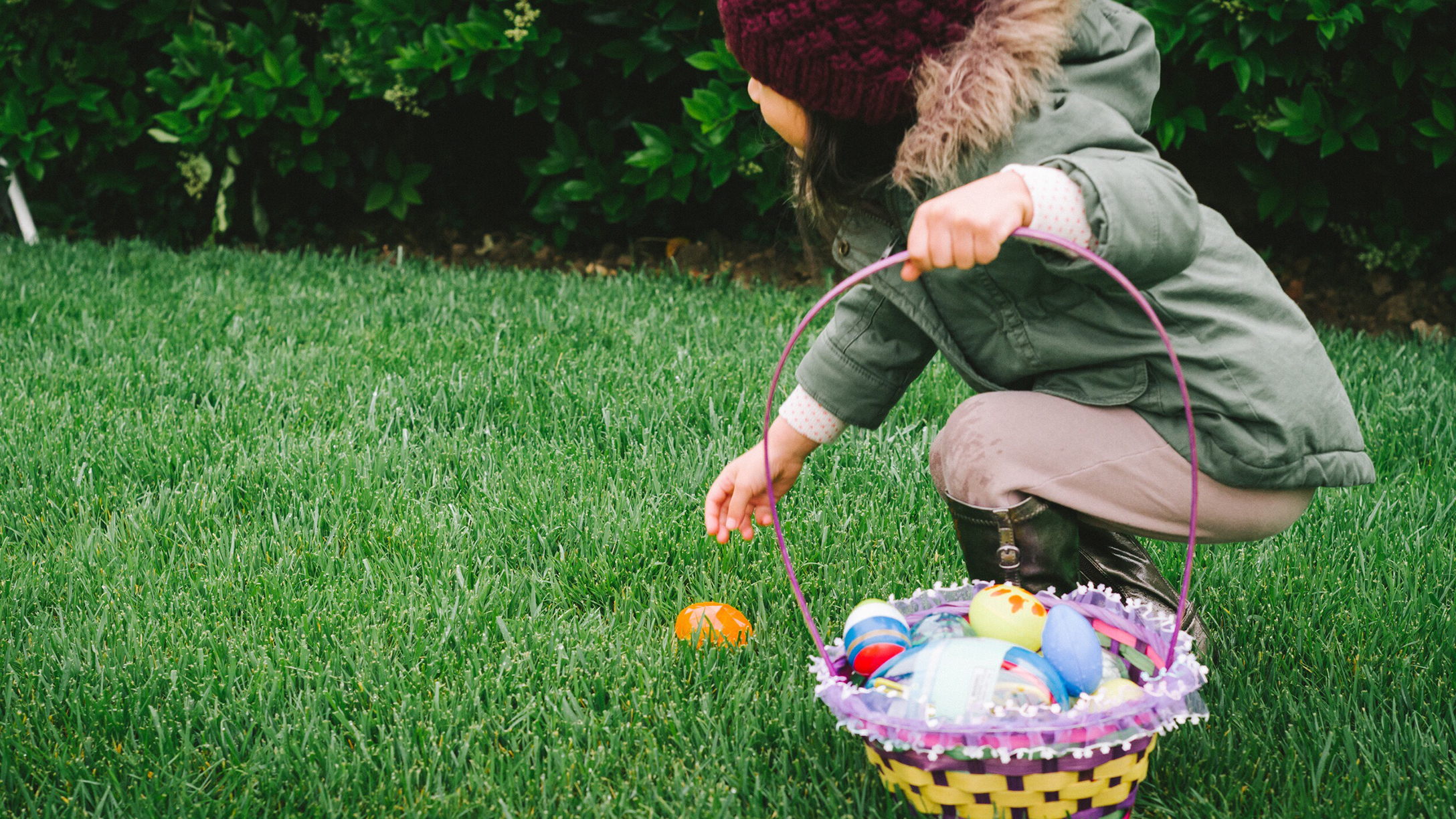

Let's make a list of all the reasons that Easter can be hard for some kids: First, there's the gigantic guy in a white bunny suit at the mall who later will sneak into your house and hide all your eggs. Then there's the candy, but you aren't allowed to eat any because of the sugar/milk/red food coloring. There are relatives you don't really know all that well staying at your house, and a big Sunday dinner with a bunch of foods you don't like. Itchy dress clothes, new shoes, a long, boring church service . . . am I missing anything?
Holiday excitement can wind kids up, but it can be especially tough for kids with special needs. Children with sensory processing disorders might not be able to tolerate lace dresses or a snug bow tie. Children with autism might find themselves out of sorts at the change in routine. Children with ADHD could find it hard to sit through church or the family meal. Here are some tips for adapting favorite family traditions to meet your child's needs:
RELATED: How to Teach Your Kids About Easter (Without Terrifying Them)
Put down that Easter bonnet. The adorable smocking on that fancy Easter dress or the stiff dress shirt and tie might feel a little itchy to a typical child, but to a child with sensory issues who over-registers sensations it could very well be unbearable. You might be able to compromise by letting her wear a favorite t-shirt underneath or letting him wear his Superman socks. But if not, you might just have to let it go. If you just can't bear to let her wear her beloved sweatpants today, at least pick out an outfit that's soft and comfortable. Make it special by choosing holiday colors or adding holiday accessories.
Adapt your Easter Egg hunt. No one is less happy than a kid with an empty basket at the end of an Easter egg hunt. While it may be tempting to hover nearby and help your child find his eggs, there are ways to adapt your hunt so he can be successful on his own. The first step is to lay out the rules: Everyone stops after finding X number of eggs, which gives slower children more time to look for their eggs without fear of them all being found. Or try assigning each child their own color to find. Talking eggs give an additional auditory clue and are also great for kids with visual impairments. One of my favorite home visit activities this time of year is an egg hunt inside a sensory bin (usually rice). Because it's one-on-one, each child has as much time as they want to find their eggs and it's an activity that is easily adapted to each child's needs.
RELATED: 5 Solutions for Kids Who Can't Sit
Go candy-free. Children with special needs often have some sort of food restriction. Eliminate the issue by filling your Easter eggs with toys instead. Consider fidget toys, bubbles, Silly Putty, pencil grips, novelty erasers, toy cars, ear buds, balls, money, and Lego figurines. If you're giving a treat to a child on a special diet, be sure to run any food items by mom and dad first to make sure it's not on the restricted list.
Finally, plan ahead. You know your child better than anyone, so anticipate trouble spots before they happen. Pack a busy bag for church, seat your child far away from a well-meaning relative who'll try and force unfamiliar foods on him, or pair your kiddo up with an understanding cousin who'll help her navigate the kids' table. Then relax and enjoy making memories with your family!







